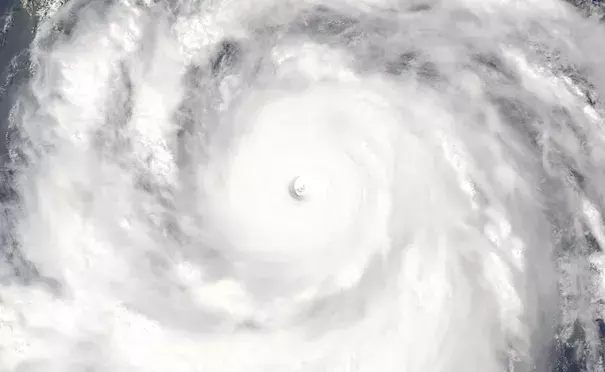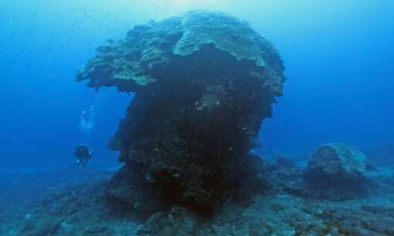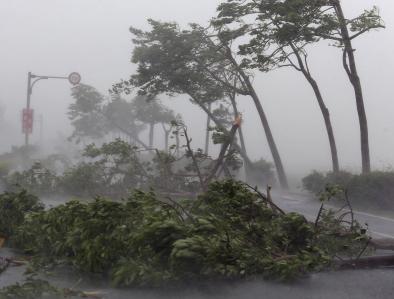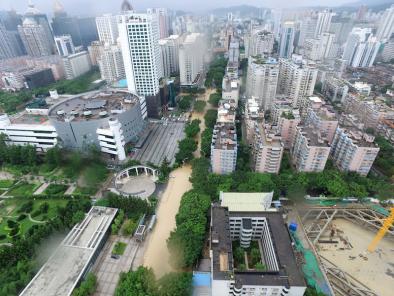Rapid Intensification Turned Meranti Into a Monster Storm

Super Typhoon Meranti became the strongest tropical cyclone to form so far this year when the winds around its eye reached an estimated 190 mph on Tuesday after it rapidly intensified over the Northwest Pacific.
China is feeling the monster storm’s ferocious storm surge, wind and rain just a day after it clipped Taiwan. Though Meranti was weakened by Taiwan’s mountains, it still packs a major punch.
As global temperatures rise, the most intense tropical cyclones (as typhoons and hurricanes are more broadly known) are expected to become both more intense and more common. Recent studies have shown that typhoons, in particular those that strike land, have shown a rise in intensity since the 1970s. But the rapid intensification that these storms often undergo isn’t a well-understood process, with potential implications for our understanding of how tropical cyclones might change in a hotter future.
...
Right now, most studies suggest that while overall tropical cyclone numbers may not change much, the intensity of the strongest storms will rise, and those storms will make up a bigger proportion of the total.
One group of researchers, examining trends in the Northwest Pacific, specifically, have found that the intensity of typhoons has risen since the 1970s. In particular, those that make landfall have seen an increase in intensity, but not those that stay out at sea. It is not yet clear, though, whether those trends are linked to global warming, or to some natural feature of Earth’s climate.
But potentially complicating the picture is the finding of another recent paper that most of the strongest storms undergo rapid intensification, and that this subset of storms is the reason that such top-tier tropical cyclones happen more frequently than would be expected. Because the process isn’t fully understand, it could affect how models represent what will happen in the future.
“I don’t think we’ve proven anything about how well climate models can simulate tropical cyclones, good or bad, right or wrong or indifferent,” study co-author Adam Sobel, who studies extreme weather at Columbia University, said in a statement. “But it certainly raises a bunch of questions we want to think about now"
Related Content






